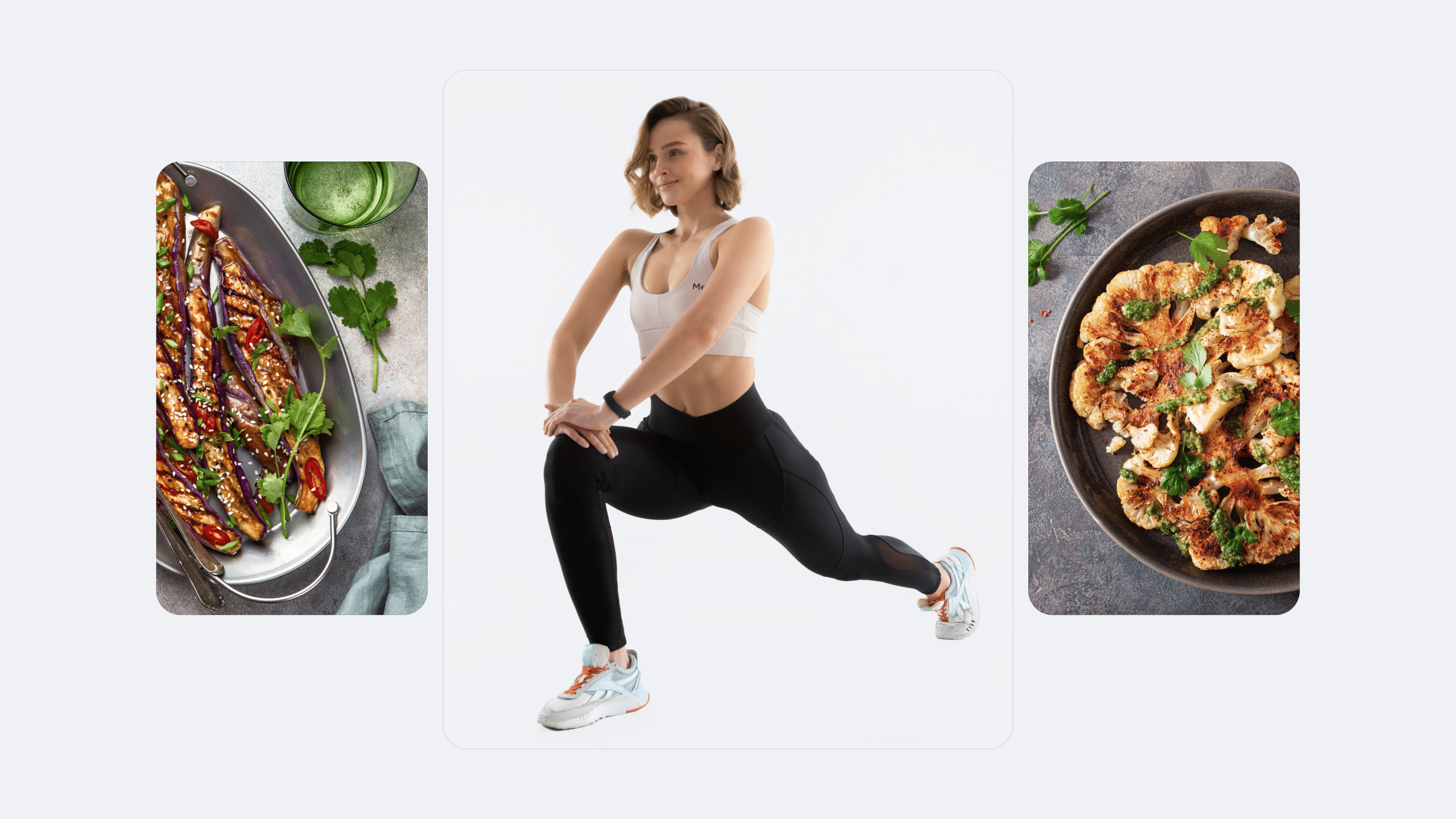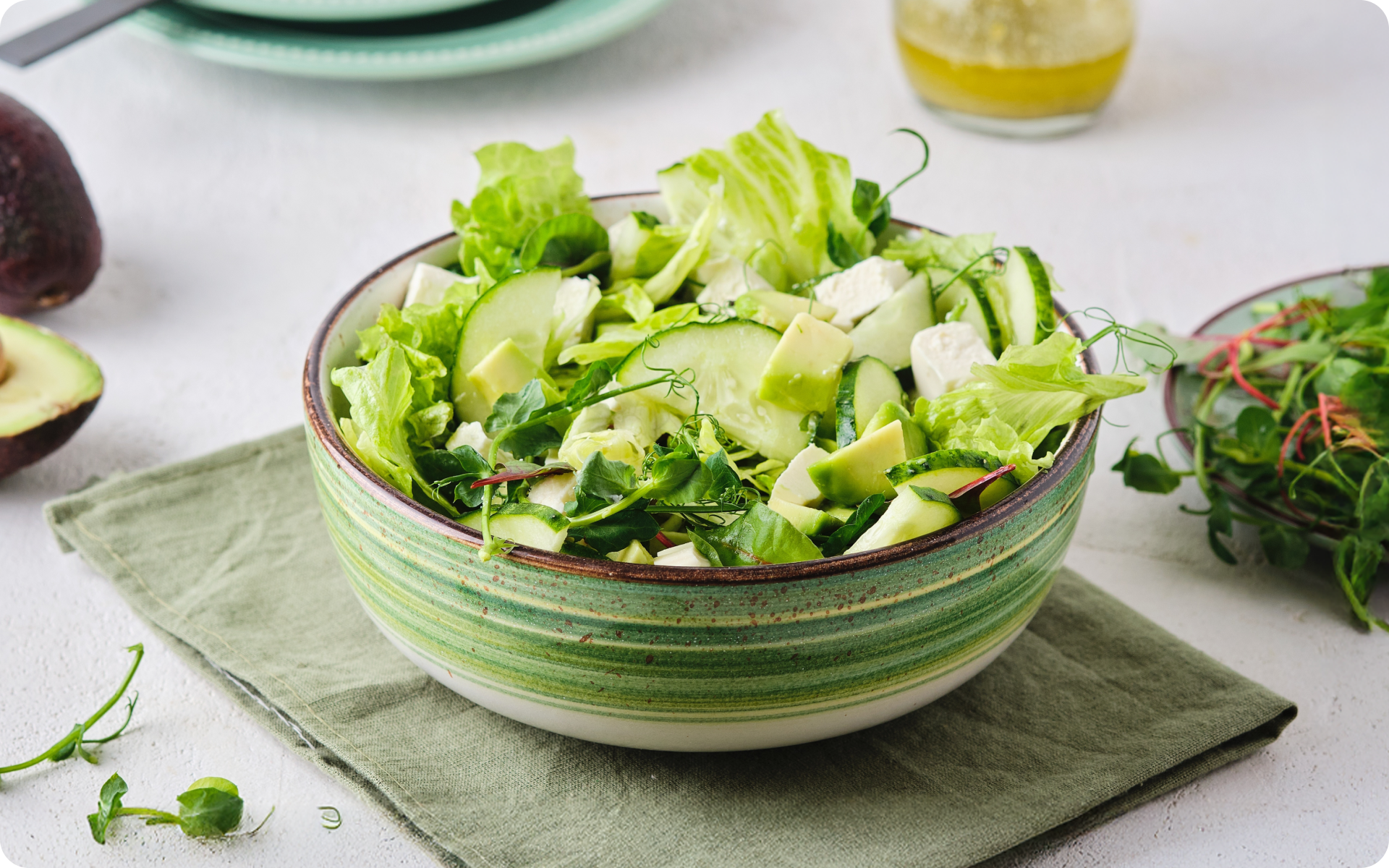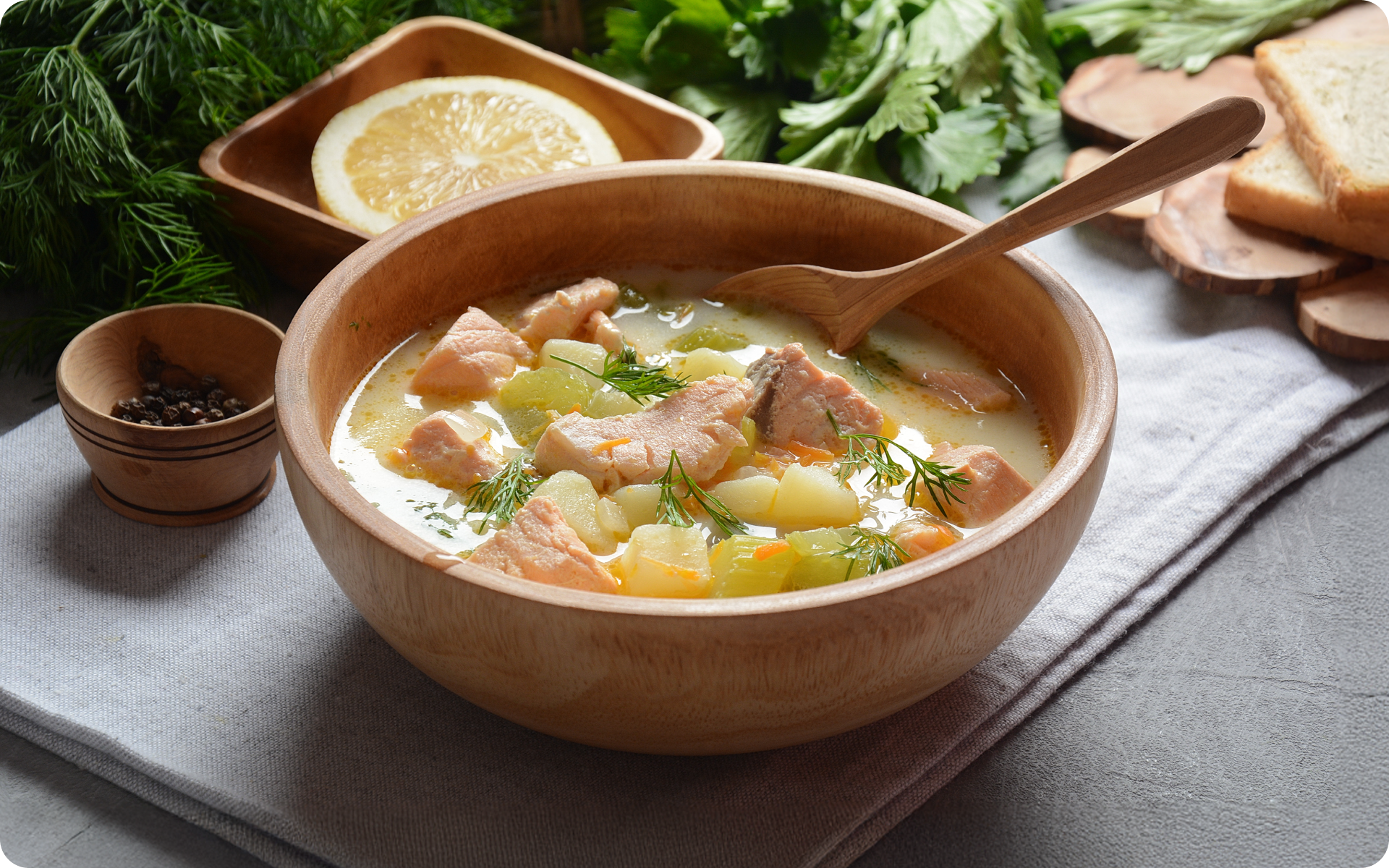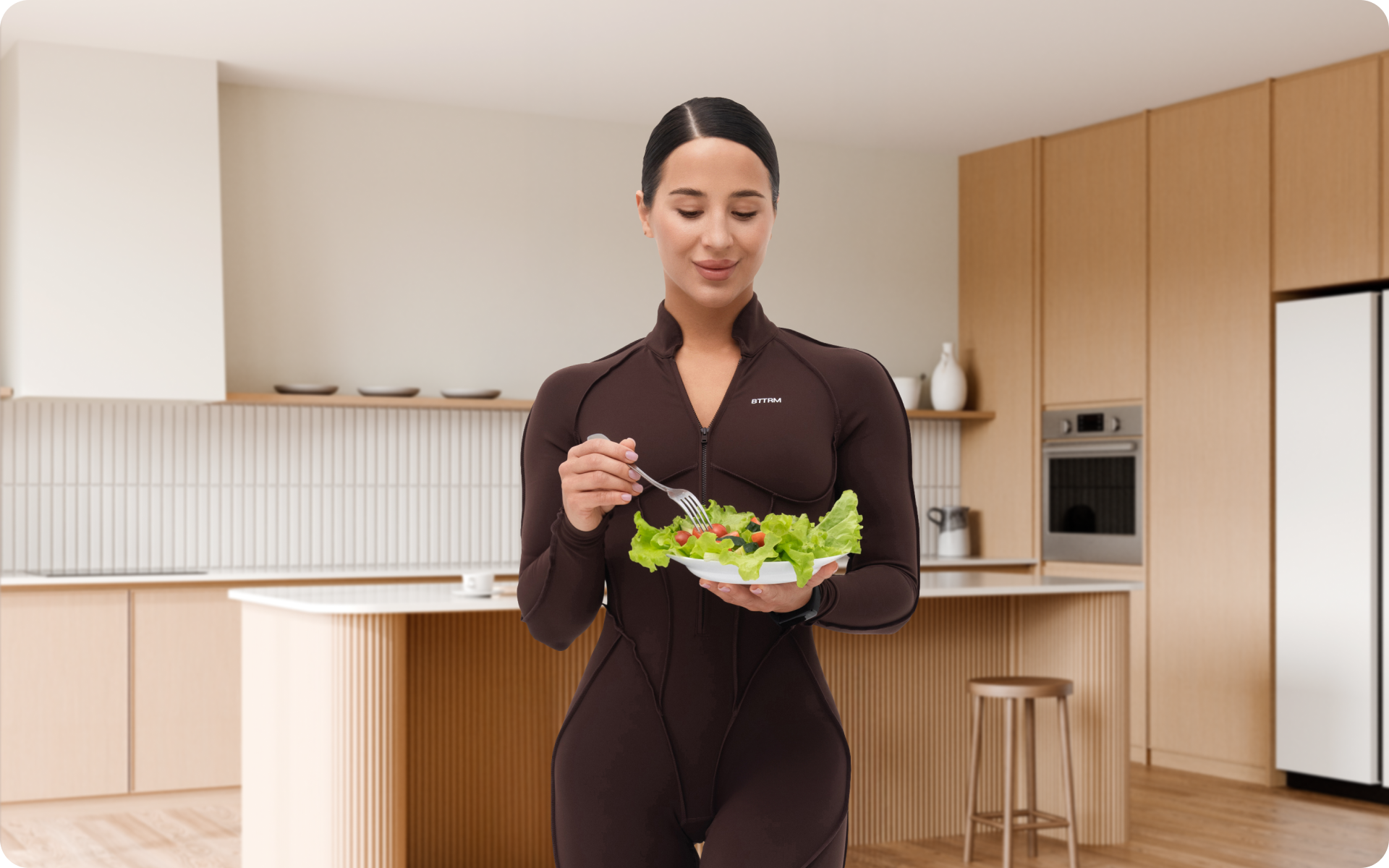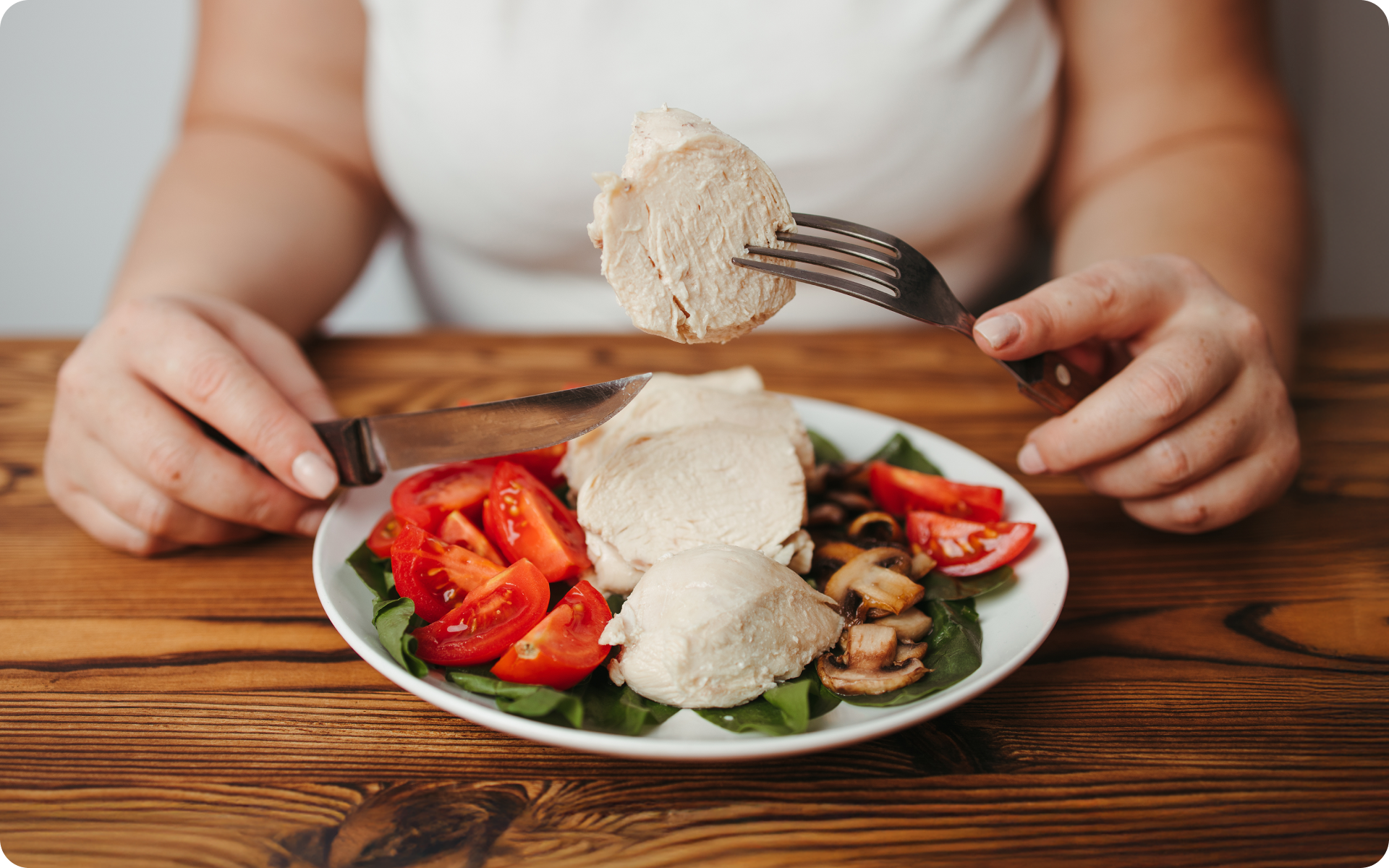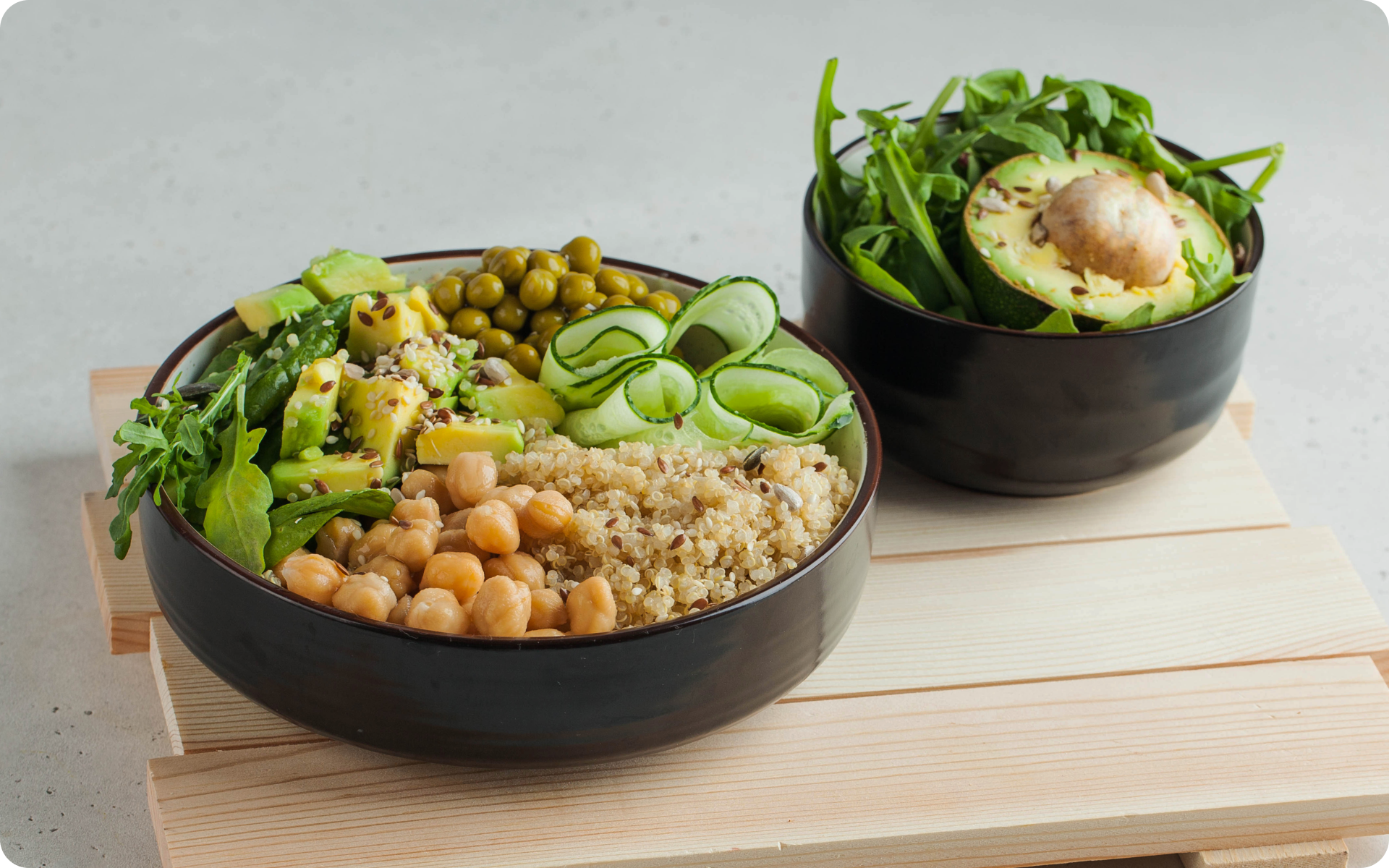It’s common knowledge that you need fuel in order to run long distances. With that in mind, what kind of fuel do you need? The type of food you eat can have a direct impact on your race performance.
A runner’s diet should be rich in complex carbohydrates and protein, and low in saturated fats and sugar. These are all vital nutrients for energy production, so it’s important to get them through what you put into your body every day. Today, we’re going to talk about how exactly these foods can help improve your running performance.
What Diet Is Best for Runners?
The Mediterranean diet is arguably the best for runners and has been found to be one of the healthiest diets generally(22).
Based on sound nutrition research, it’s high in complex carbohydrates and healthy fats, and low in saturated and trans fats. It also includes an abundance of fruits, vegetables, fish, nuts, and whole grains (22).
There are other diets that can also work for runners, such as the DASH diet, which focuses on reducing hypertension and promotes healthy eating habits. It reduces the intake of highly processed foods and focuses on the consumption of whole, natural foods (4).
What Are the 10 Best Foods for Runners?
Now let’s get down to the nitty-gritty of what you should actually eat as a runner on a daily basis.
Here’s a list of the top 10 foods that can help fuel your runs and improve your performance:
- Oatmeal – an excellent source of complex carbohydrates that provides long-lasting energy to keep you going on your runs. It also contains fiber and protein (17).
- Banana – a great pre-run snack that provides quick energy through its high levels of natural sugars while also being a good source of potassium to prevent cramps (2).
- Berries – rich in antioxidants that may help with muscle recovery after a tough run (6).
- Salmon – an excellent source of omega-3 fatty acids, which may help reduce inflammation (19).
- Avocado – a great source of healthy fats, which can help with muscle recovery and provide sustained energy for longer runs (1).
- Sweet potatoes – loaded with complex carbohydrates, fiber, and vitamins to help fuel your runs and help with muscle recovery.
- Almonds – high in protein and healthy fats, which can keep you feeling satisfied and provide sustained energy (18).
- Whole-wheat pasta – a great source of complex carbohydrates to fuel your runs and help with muscle recovery (10).
- Chicken – a lean protein source, which is essential for repairing and building muscles after a run (5).
- Low-fat Greek yogurt or cottage cheese – high in protein and low in fat, which makes it an excellent post-run snack to help with muscle recovery (9).
Reasons why BetterMe is a safe bet: a wide range of calorie-blasting workouts, finger-licking recipes, 24/7 support, challenges that’ll keep you on your best game, and that just scratches the surface! Start using our app and watch the magic happen.
What Foods Should Runners Avoid?
Runners should avoid highly processed and sugary foods, in addition to foods that are high in saturated fat. These can cause digestive discomfort and provide empty calories that won’t contribute to your performance.
Some examples of foods to avoid or limit include:
- Fast food, such as burgers, fries, and milkshakes
- Energy bars or gels that are high in sugar
- Soda and other sugary drinks
- Fried foods
- Candy and sweets
- High-fat meats, such as bacon and sausage
- Full-fat dairy products
Generally, it’s best to stick to whole, nutritious foods that provide a variety of nutrients to support your running performance.
What Are the Essentials of a Running Diet?
A healthy diet for runners should include the following:
Complex Carbohydrates
These carbs are made up of long chains of sugars and starches and are found in whole grains, vegetables, fruits, beans, and legumes. They also contain fiber, which slows down digestion and absorption and results in a more steady supply of energy.
In addition to providing fuel for your runs, consuming complex carbs can help stabilize blood sugar levels, which is important because if your blood sugar levels go too high or too low during a race, you’ll feel less energized and may experience fatigue or cramping (20).
For example, pasta is a great choice when you want to eat something before your run for a quicker burst of energy, but you should also consider whole-grain bread for sandwiches or wraps at regular mealtimes.
Protein
Protein is essential for building and repairing body tissues, making it essential for the maintenance of lean muscle mass (5). It’s important to understand that proteins are not used by our bodies as primary energy sources.
Instead, they’re broken down into amino acids that are used for several purposes in the body but can later be converted into glucose through a process known as gluconeogenesis (3).
This means that protein consumption alone may not give you enough energy to keep running, but it can help with your recovery after a workout or running session (14).
Therefore, you should make sure you get protein at every meal if your goal is to improve your running performance. You can get enough protein from lean meats, fish, eggs, and low-fat dairy products.
Fats
These are a great source of energy for runs as they supply 9 calories per gram, which is more than carbohydrates or proteins that both have 4 calories per gram (11).
However, eating a diet that is high in fats will not be helpful on its own as the body cannot fully process them into glucose quickly enough for quick use as an immediate energy source. Your body typically starts to burn fat for fuel when it runs out of carbohydrates.
Therefore, it’s best to combine healthy fats with complex carbs when you eat before a training session to give you that extra edge you need, particularly when performing intense workouts such as speed training.
For example, don’t choose just a spoonful of peanut butter, put it in a sandwich with whole-wheat bread instead.
Hydration
It’s essential for runners to remain hydrated, but don’t confuse hydration with loading up on sugar-sweetened beverages.
Research has shown that hydrating with sugar-sweetened drinks can reduce physical performance and may increase cardiovascular disease risk (21).
This may be best explained by the Glycemic Index where sugary foods are absorbed right into the bloodstream, which causes blood sugar levels to spike quickly and then fall sharply after a short period of time, potentially causing fatigue.
Plain water or sports drinks are great options for hydrating before workouts. However, you should avoid drinking too much water immediately before you run as this can dilute the sodium in your body. This can cause hyponatremia, which is more common among long-distance runners as they’re at risk of losing more electrolytes via sweat during workouts (12).
Therefore, it’s important to match your fluid and electrolyte intake with your sweat loss so you don’t fall short on hydration and risk cramping or feeling dizzy during runs. To do so, drink one or two cups of extra water and consider increasing your sodium intake for a few days before the race itself.
If you can, you should consider drinking an electrolyte beverage that contains sodium, potassium, and bicarbonate after training sessions, as this can help maintain blood pH levels, particularly if your sweat losses are high.
Read more: Intermittent Fasting and Running: A Winning Combination or a Terrible Mistake?
Fat, Carb, and Protein Ratios for Runners
A recommended ratio of macronutrients in a runner’s diet is 50-60% carbohydrates, 15-30% protein, and 20-35% fat with an emphasis on high leucine protein sources (lean meats, dairy, and soy) (8).
This is based on studies that have shown that high-carb diets are most effective at replenishing glycogen stores within two hours of exercise, while low-carbohydrate diets result in more fat-burning during exercise but take longer to recover afterward (8).
The numbers are not absolute rules. There is no one-size-fits-all diet for runners as everyone’s body is different, so you must listen to your body. If you feel good and energized, you’re probably doing the right thing for your diet.
How Many Calories Should Runners Eat?
If you’re a runner who wants to know how many calories of each macronutrient should be in your daily diet, there is no general answer. Caloric needs vary depending on age, gender, weight, and level of activity.
The idea of having a pre-set caloric intake recommendation based on factors such as height and weight doesn’t exist as this would make it difficult for people to maintain their ideal weight when this can change frequently over time or if they’re trying to gain muscle mass or lose fat.
For example, an active person will need more calories than someone who is sedentary, while someone who has a lot of weight to lose will need fewer calories than someone who just wants to maintain their weight.
Based on these factors, it’s recommended that runners eat anything from 1.7 to 2.4 times their RMR (resting metabolic rate), depending on the intensity of their training (8).
8-Week Diet Plan for Runners
Here’s an 8-week diet plan for runners that may help you improve your running performance and eat more nutritious foods with the right macronutrient ratio.
Breakfast Options
A healthy runner’s breakfast should include a combination of complex carbohydrate foods and lean protein sources. Some ideas for this meal include:
- Whole-grain toast or bagel with almond butter and banana slices
- Whole-grain cereal with milk and berries
- Oatmeal with yogurt, fresh fruit, and cinnamon
- Eggs on whole-wheat toast with avocado slices
- Yogurt and granola with fresh berries
Lunch Options
A runner’s lunch should include a combination of carbohydrates, protein, and vegetables. It’s meant to keep you energized and help you recover between workouts (8). Some ideas for this meal include:
- Sesame salad with tofu, brown rice, and vegetables
- Turkey or chicken sandwich on whole-grain bread with lettuce and tomato
- Bean soup with whole-grain crackers
- Tuna salad made with mayo on whole-grain bread or crackers
- Turkey sandwich on whole-wheat bread or wrap with hummus and vegetables
- Chicken breast or fish filet with brown rice and steamed broccoli
- Salad topped with shrimp, artichoke hearts, and pine nuts
Snack Options
Snacking can help a runner meet their nutritional requirements and maintain a healthy weight. However, snacks should not consist of too many high-fat processed foods or sweets as these may impede running performance.
Here are some good examples of healthy snacks that can keep your energy up and cravings down:
- Apple slices with peanut butter
- Pears and almond butter
- Cherry tomatoes or radishes with cream cheese (make it more interesting by adding different herbs such as basil, mint, cilantro, dill)
- Cucumbers dipped in hummus
- Roasted nuts (low-fat and low-sodium)
- Berries or melon with yogurt
BetterMe app will provide you with a host of fat-frying fitness routines that’ll scare the extra pounds away and turn your body into a masterpiece! Get your life moving in the right direction with BetterMe!
Dinner Options
A runner’s dinner should include a combination of lean protein, complex carbohydrate foods, and vegetables. This is meant to help you wind down after a workout and start the recovery process (8).
Some ideas for this meal include:
- Pork tenderloin served with brown rice and sauteed vegetables
- Tilapia filet served with whole-wheat pasta and broccoli
- Salmon with quinoa and green beans
- Skinless, roasted chicken breast over quinoa pilaf
- Lentil soup made from scratch
- Turkey sandwich with vegetables on whole-wheat bread
- Beef stir-fry served over steamed broccoli, or brown rice turkey chili made from scratch
- Oven-baked chicken breast with roasted broccoli and brown rice
- Chicken korma (Indian curry) made with cauliflower, potatoes, and lentils
Diet Tips for Runners
Proper nutrition for runners is all about knowing what, when, and how much to eat. Here are some helpful tips you can use to fuel yourself the right way:
Eat Nutrient-Dense Foods
Eat a variety of nutrient-dense foods during the day. These include healthy fats, lean protein sources, and whole grains, in addition to fruits and vegetables. Eating nutrient-dense foods helps you consume the nutrients that are necessary to support your body throughout training and recovery.
Foods that contain carbohydrates are particularly important for runners as they deliver energy from your body’s favorite fuel source, which is glucose (20).
Eat Before Activity
Many people find it helpful to eat a small amount of carbohydrates before activity so the food is ready for energy use once the exercise begins. The type of food you eat is dependent on personal preference.
Some runners choose a simple snack such as fruit or yogurt, whereas others enjoy eating breakfast just before exercising. Experiment with different types of foods before your workouts to find out what works best for you.
There has also been some buzz about running in a fasted state. Some people have argued that you burn more fat this way. While this may sound enticing, it’s important to remember that running on an empty stomach may or may not work for everyone.
Find out more in our previous post – Running On An Empty Stomach: Is It All It’s Cracked Up To Be?
Eat After Activity
For many runners, eating after an activity is just as important as eating before. Eating carbohydrate-rich foods within 30 minutes of completing a run will give your body the necessary fuel to start its recovery (13).
For some people, this means enjoying a small snack such as fruit or yogurt after exercise, while others may prefer a larger post-run meal that includes whole grains and lean protein sources.
The amount you eat will be dependent on factors such as intensity, duration, and the time of your last meal. Some food choices are better than others.
For example, it’s generally not helpful to choose fast food options for recovery meals as they provide more calories than the body needs at once. It’s also not helpful to avoid carbs after exercise as your body needs carbohydrates for energy and to start its recovery.
Avoid Low-Carb Diets
Some athletes try to lose weight by eating a diet that is incredibly low in carbohydrates, but this is likely to have a negative impact on performance and overall health.
For one thing, being deficient in carbs can lead to muscle cramps and fatigue during prolonged endurance events such as long training runs (15). This means that you’re more likely to give up before you reach your goals
In addition, if you follow a carb-restricted diet in the long term, it’s likely that you’ll only see short-term results. This is because restricting calories from carbs can cause you to feel tired and sluggish, which are things you don’t want when you’re working out hard.
Indulge Occasionally
As all foods fit into a healthy diet, you can enjoy the occasional treat such as French fries or cupcakes. However, you should make sure you keep these treats occasional and don’t let them become part of your everyday routine.
Read more: Beach Running Workout 101: A Comprehensive Guide to Sand Training
FAQs
What food makes you run faster?
There’s no magic food that will make you run faster. However, there are certain foods that can help fuel your body and improve performance, including carbohydrates for energy and lean protein sources for muscle repair.
How can I increase my running speed?
Running frequently, using techniques such as interval training, and incorporating strength training into your workout routine can help increase your running speed. In addition, proper nutrition and hydration are essential for optimal performance.
Does coffee help with running?
Coffee contains caffeine, which has been suggested to have performance-enhancing effects on endurance activities such as running (7). It may help reduce feelings of fatigue and increase alertness, which makes it a popular choice for many runners.
The Bottom Line
The main thing to remember about a diet for runners is that you should eat foods that give you the necessary energy to complete your workouts while still allowing you to pay attention to quantities so you don’t over- or undereat.
DISCLAIMER:
This article is intended for general informational purposes only and does not serve to address individual circumstances. It is not a substitute for professional advice or help and should not be relied on for making any kind of decision-making. Any action taken as a direct or indirect result of the information in this article is entirely at your own risk and is your sole responsibility.
BetterMe, its content staff, and its medical advisors accept no responsibility for inaccuracies, errors, misstatements, inconsistencies, or omissions and specifically disclaim any liability, loss or risk, personal, professional or otherwise, which may be incurred as a consequence, directly or indirectly, of the use and/or application of any content.
You should always seek the advice of your physician or other qualified health provider with any questions you may have regarding a medical condition or your specific situation. Never disregard professional medical advice or delay seeking it because of BetterMe content. If you suspect or think you may have a medical emergency, call your doctor.
SOURCES
- Are Avocados Actually Good for You? (2023, runnersworld.com)
- Bananas as an Energy Source during Exercise: A Metabolomics Approach (2012, ncbi.nlm.nih.gov)
- Biochemistry, Protein Catabolism (2022, ncbi.nlm.nih.gov)
- DASH Diet To Stop Hypertension (2023, ncbi.nlm.nih.gov)
- Dietary Protein and Muscle Mass: Translating Science to Application and Health Benefit (2019, ncbi.nlm.nih.gov)
- Effect of New Zealand blueberry consumption on recovery from eccentric exercise-induced muscle damage (2012, ncbi.nlm.nih.gov)
- Effects of Caffeine Intake on Endurance Running Performance and Time to Exhaustion: A Systematic Review and Meta-Analysis (2022, ncbi.nlm.nih.gov)
- Fueling for Performance (2018, nih.gov)
- Greek Yogurt and 12 Weeks of Exercise Training on Strength, Muscle Thickness and Body Composition in Lean, Untrained, University-Aged Males (2019, frontiersin.org)
- High-Quality Carbohydrates and Physical Performance (2017, ncbi.nlm.nih.gov)
- How many calories are in one gram of fat, carbohydrate, or protein (n.d., usda.gov)
- Hyponatremia in Athletes (n.d., gssiweb.org)
- International society of sports nutrition position stand: nutrient timing (2017, nih.gov)
- International Society of Sports Nutrition Position Stand: protein and exercise (2017, biomedcentral.com)
- Low-carbohydrate diets: what are the potential short- and long-term health implications? (2003, pubmed.gov)
- Low FODMAP Diet: Evidence, Doubts, and Hopes (2020, ncbi.nlm.nih.gov)
- Nutritional advantages of oats and opportunities for its processing as value added foods – a review (2013, ncbi.nlm.nih.gov)
- Nuts, Energy Balance and Body Weight (2023, ncbi.nlm.nih.gov)
- Omega-3 fatty acids and athletics (2007, pubmed.ncbi.nlm.nih.gov)
- Physiology, Carbohydrates (2021, nih.gov)
- Sucrose-Sweetened Drinks Reduce the Physical Performance and Increase the Cardiovascular Risk in Physically Active Meals (2021, hindawi.com)
- The Mediterranean diet and health: a comprehensive overview (2021, onlinelibrary.wiley.com)


